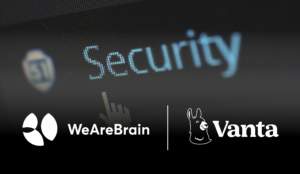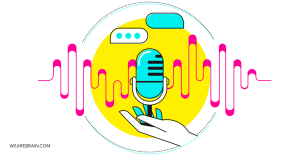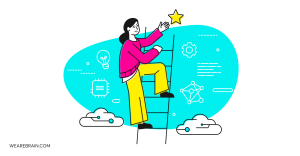Demystifying AI Part 2: Industries that benefit from artificial intelligence

Today, businesses across the globe are leveraging artificial intelligence to optimise their processes to reap higher revenues. A 2016 Gartner research paper shows that by next year, at least 30% of global businesses will use AI in at least one aspect of their sales processes.
Currently, AI benefits so many industries and is set to dominate the global business landscape in years to come with more industries set to adopt this technology. We have condensed a litany of industries which currently benefit the most from AI into a list of our top 5. Has your industry been included?
AI in Healthcare
The benefits of AI intervention in healthcare has been well documented. Our previous article elaborates on just how much of an impact AI and ML have had within the healthcare sector, benefiting both patients and healthcare practitioners. It helps doctors with diagnoses and can tell when patients are deteriorating to a point where medical intervention is necessary, preempting the need for hospitalisation. Medical chatbots like Your.MD and Florence interact with users, educate them, inform them on healthcare issues, and allay any potential trauma due to mis-self-diagnosis.
AI helps analyse complex medical data, like X-rays, CT scans, and different screenings and tests. Using a patient’s data together with clinical research, medical professionals are able to develop personalised treatments for each patient. “It’s a win-win for the healthcare industry, saving costs for both the hospitals and patients. The precision of machine learning can also detect diseases such as cancer sooner, thus saving lives” says Adam Bayaa of Heal.
Redivus Health is a mobile app used by healthcare providers to prevent medical errors by offering both clinical decision support during critical medical events, as well as documenting those events electronically in real-time. According to Dr. Jeff Dunn, CEO of Redivus Health,
AI presents opportunities for our application to take the data we have gathered from patients and be able to clinically innovate to improve patient outcomes to an even greater extent. AI improves reliability, predictability, and consistency with quality and patient safety. While it can’t replace doctors and nurses, it can make them more effective, efficient and happier on the job as it takes the cognitive burden off our providers — which increases confidence as well as reduces stress and anxiety ”.
Dr. Jeff Dunn, CEO of Redivus Health.
AI in Cybersecurity
AI is most effective in cybersecurity with regards to data protection. AI and ML allow businesses to detect vulnerabilities, anomalies and nefarious user behaviour in certain business applications and various financial systems. AI systems constantly analyse a business’s network packet and map out what is normal traffic, and what is abnormal.
The main benefit and draw to AI technologies is that they beat traditional firewall rules and works automatically to find anomalies.
Deep learning is empowered to see if a user has any suspicious activity. So, even if attackers have penetrated into a victim’s system, they start taking actions that differ from the usual ones and as a result, they do not leave unnoticed and their damage is prevented ”.
Alexander Polyakov, CTO and Co-Founder of ERPScan.
AI in Human Resources
We have already covered in detail how AI is disrupting Human Resources for good. HR is widely regarded as the perfect point, the ‘primordial glue’ of where AI can fully flourish. This is largely due to the fact that human resources is brimming with top quality, clean data and it is a department often pressed for time in most businesses.
It might seem paradoxical but the more Artificial Intelligence a company deploys in HR, the more ‘Human’ a company it can be. HR’s automatic generation of top quality data and the incredible benefits of AI make it one of the first places to experience the 4th industrial revolution ”.
Xavier Parker, Co-Founder and CEO of PLATO Intelligence.
AI can handle most aspects of basic recruitment responsibilities by dealing with the preliminary portions of recruitment. It can receive and sort through resumes, schedule interviews and even handle certain screening protocols according to each company’s methods.
With AI handling these time-consuming, administrative tasks it frees up time for HR personnel to directly work with the people of the company, providing time to each person so employees feel like their best interests are being taken care of. This boosts productivity and employee satisfaction, which in turn beefs up a business’s ROI.
With unemployment at historical lows, recruitment of qualified workers remains one of the most difficult challenges. By harnessing the power of recruiting automation, savvy employers are using AI-powered sourcing tools to find candidates who may not have been considered for roles in the past, not because they weren’t qualified, but because they weren’t surfaced in the first place ”.
Jon Bischke, Entelo.
AI in Retail/Etail
Artificial intelligence is most commonly used and accepted in the digital retail, or ‘e-tail’ space. Just a few minutes on any e-commerce website and users are confronted by intelligent chatbots driving sales and assisting with recommendations and purchases.
Conversation intelligence software such as natural language processing (NLP) helps companies interact with customers and follow up leads by analysing user behaviour and partitioning sales calls using speech recognition. Chatbots and virtual customer assistants allow retail companies to run a full-time customer service operation and answer basic questions without the involvement of human staff.
Recommendation engines use the power of machine learning and predictive analysis to provide personalised recommendations to each customer. Large e-commerce platforms like Amazon rely heavily on recommendation systems which boost their revenue of about one third.
We are using machine learning and AI to build intelligent conversational chatbots and voice skills. These AI-driven conversational interfaces are answering questions from frequently asked questions and answers, and to provide information about products for shopping. Advancements in deep neural network or deep learning are making many of these AI and ML applications possible ”.
Mitul Tiwari, Passage AI.
AI in the Workplace
Artificial intelligence seeks out inefficiency in the workplace to adapt and improve service delivery. Any rules-based, repetitive task is in AI’s crosshairs which frees up time for employees to concentrate on tasks which require human thinking, strategy and emotional intelligence. According to newgenapps, through chatbots and virtual assistants, artificial intelligence will help businesses improve communication internally and externally by enabling individual personalisation for each professional, allowing for enhanced focus and increased productivity.
Essentially this means that soon offices leveraging AI in the workplace will have two sets of teams, with each employee having a ‘digital duplicate’ handling the administrative, repetitive tasks, while the employee benefits through more time to create and innovate.
With such AI personalization, each individual will be empowered thanks to an intelligent virtual assistant, … saving you time by understanding your needs and goals, as well as recommending next-best-action to take… In the short to long run, business processes will improve, innovation will grow as employees will clear their tasks, and stress may decrease”.
Eran Abramson, Head of Marketing at Knowmail.
It’s no secret that businesses leveraging AI technologies benefit from increased productivity and higher rates of return. But it’s AI’s power to free up time for employees to focus on high-level strategic thinking where AI will make the most impact. AI gives you the most precious and valuable assets in business — time. It affords us the freedom to create. The technically minded of us have created something truly innovative, to which the creatively minded get the benefit to wander, explore, create and innovate within our professions. How lucky are we?
Read the first part of our series on AI:
Mario Grunitz
Working Machines
An executive’s guide to AI and Intelligent Automation. Working Machines takes a look at how the renewed vigour for the development of Artificial Intelligence and Intelligent Automation technology has begun to change how businesses operate.







